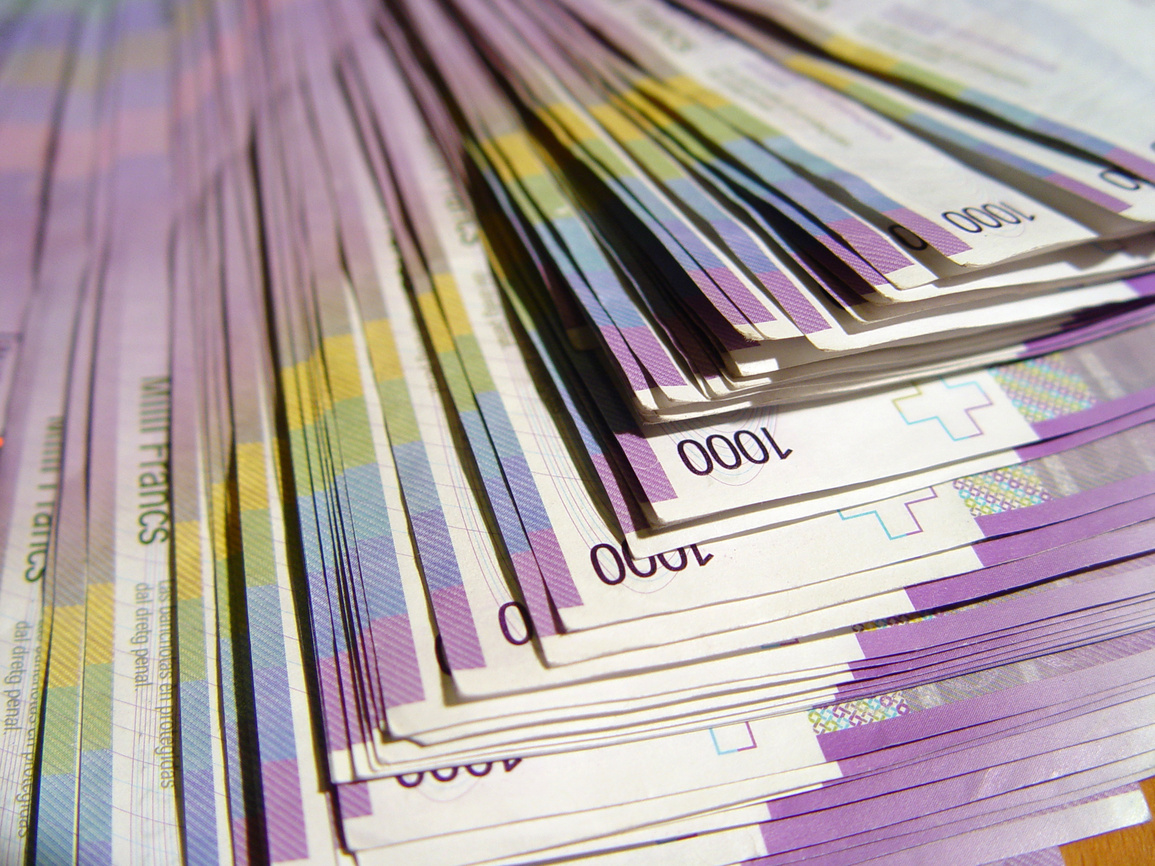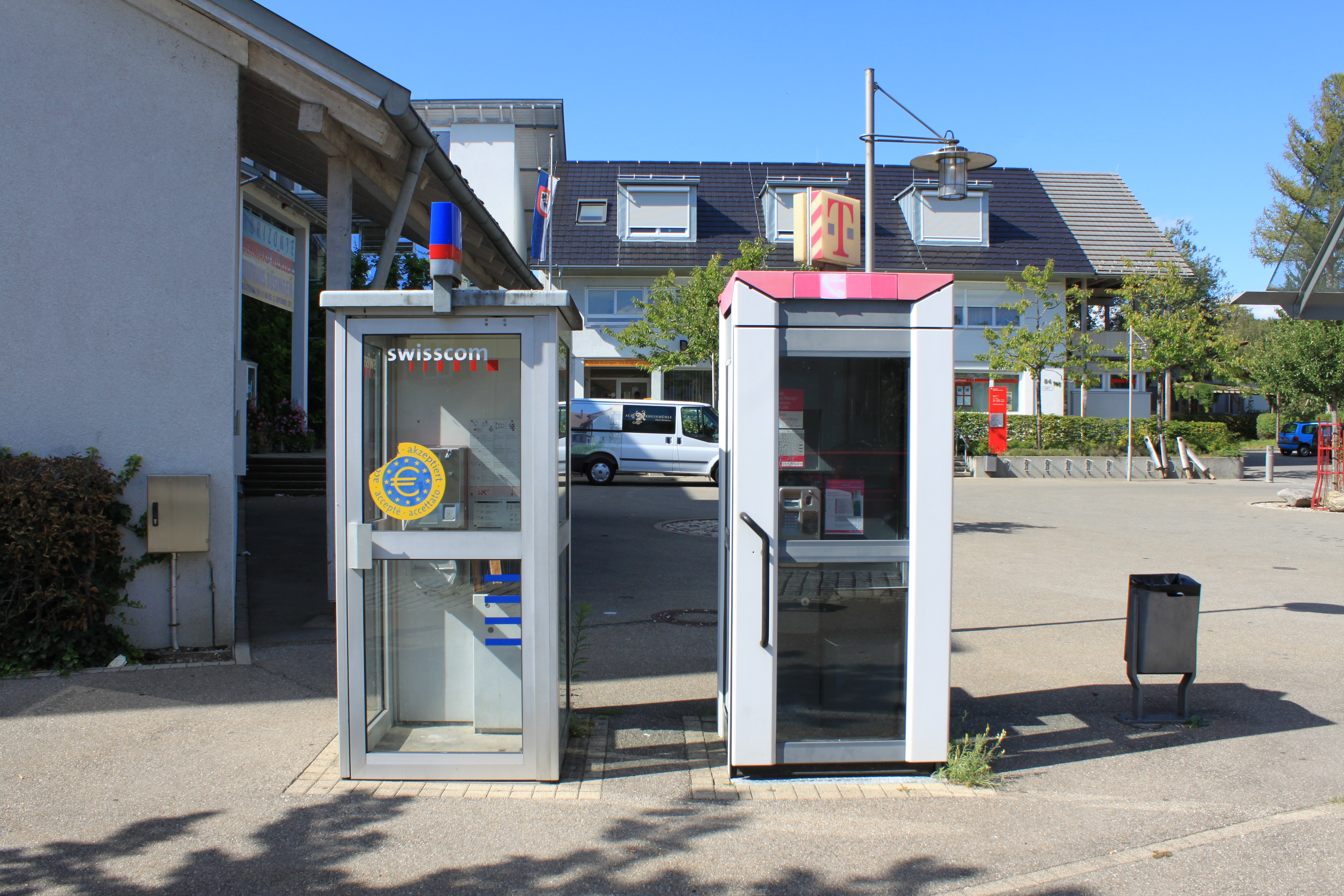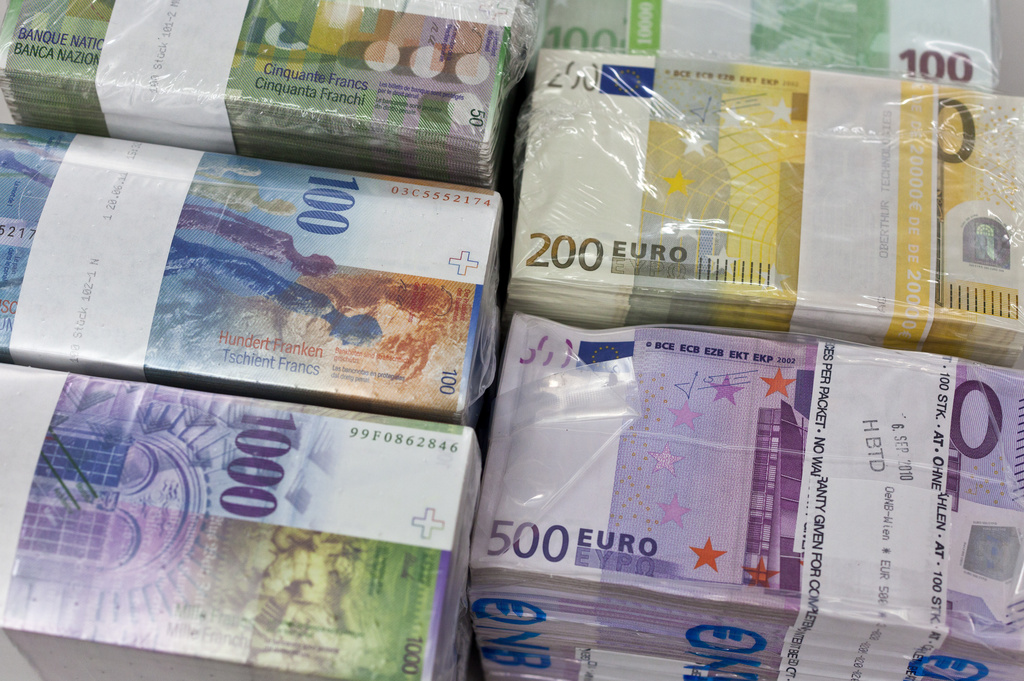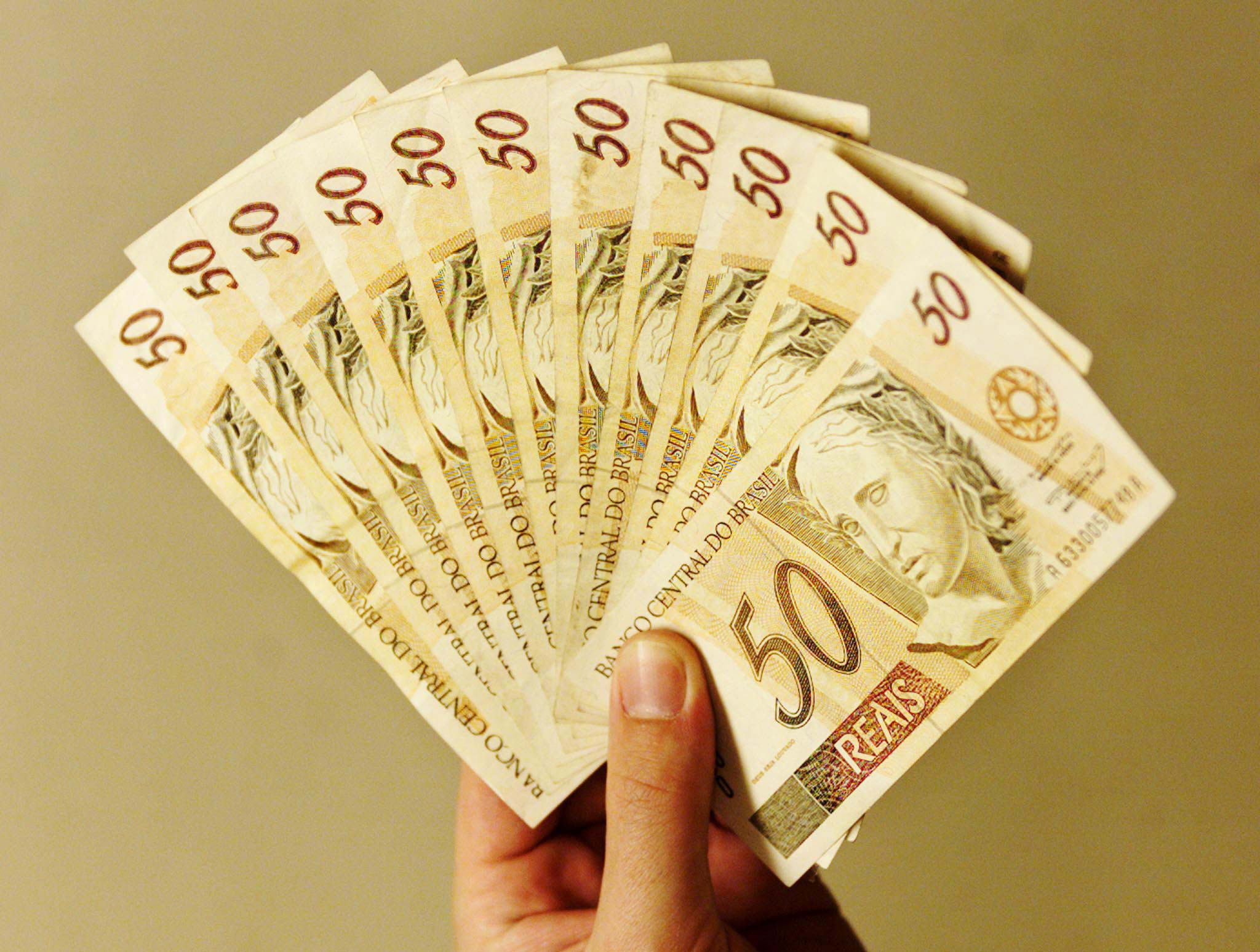Return to floating exchange rate dismissed

The euro recently fell for the first time just below the minimum limit of SFr1.20 ($1.31) set by the Swiss National Bank (SNB) in September 2011.
However, currency experts agree that the temporary slip that occurred during Easter week does not require a change in exchange rate policy.
Thomas Jordan, vice-president and interim president of the SNB, defended his institution at the start of this week and said that doubts about the exchange rate policy were “unfounded”.
Jordan repeated the central bank’s willingness “to buy foreign currency in unlimited amounts” in order to keep the franc within the specified limits. He also confirmed that the Swiss currency “remained overvalued”.
His explanation came after a few financial transactions on April 5 jolted the Easter-time lack of currency movement, causing the euro to trade at SFr1.19. It was the first time the franc had fallen below the minimum limit established by the SNB seven months ago.
According to industry analysts, the volatility was caused partly by economic problems in Spain. Last weekend, Swiss publications such as the “Finanz und Wirtschaft” newspaper criticised the SNB for “going on holiday” when the going got tough.
While some consider the policy of the central bank insufficient, others consider it to be exaggerated.
Although the strong franc has not ruined Switzerland as an industrial centre, the situation is still dramatic, said Hans Hess, president of Swissmem, the umbrella lobby group for the electrical, machinery and metal industries.
In contrast, the International Monetary Fund (IMF) has advised Switzerland to return to a floating exchange rate as soon as economic conditions allow.
Search for security
Janwillem Acket, chief economist at private bank Julius Bär’s global economics research department, told swissinfo.ch that the success of the current policy confirmed that it slowed the impact of major cyclical erosion.
“It allows Swiss companies more stability in the planning and execution of their businesses. Giving them up could result in the economy losing more than it gains,” Acket said.
Jan-Egbert Sturm, director of the Swiss Economic Institute (KOF) in Zurich, has similar views: a change in exchange rate policy now would lead to uncertainty, he believed.
“At present it is unclear how the markets would react to the elimination of the minimum exchange rate. Perhaps the exchange rate would level off in the vicinity of SFr1.20 per euro. It is also possible that any bad news from the eurozone would unleash speculation, which would then hurt the Swiss franc,” Sturm told swissinfo.ch.
This is consistent with the opinions voiced by Swiss Economics Minister Johann Schneider-Ammann. In late March, he told Swiss national television that doing away with the minimum exchange rate “would be devastating for the country”.
The former businessman even went a step further when he said he would welcome an exchange rate of SFr1.35-1.40 per euro.
Printing banknotes
On April 6, the SNB published the figures for March 2012, reporting that the country’s international reserves amounted to SFr237.5 billion as of March 31.
At the end of February, that figure was SFr227.2 billion – indicating that the SNB had increased its reserves by SFr10 billion within a month.
Whenever the SNB discreetly intervenes and buys euros to curb speculation against the franc, it must adopt one of the following measures: either using money that is invested elsewhere (gold sales, sale of cantonal bonds etc.), or activating the banknote printing press.
Sturm confirmed the harmful effects of raising prices but did not share the concerns of the IMF, stating that Switzerland is far from an inflationary scenario.
“Switzerland is experiencing a period of negative inflation. The Swiss franc appreciated before the minimum exchange rate was fixed, and many goods and services abroad have become cheaper. This has led to a process of pushing prices down that still hasn’t finished,” he said.
Acket of Julius Bär agreed that “deflation is still on the Swiss agenda”.
Necessary conditions
Some say various conditions must be met before a change in exchange rate policy can be considered.
For Acket, it would be important that the Swiss franc be spontaneously removed from the threshold of SFr1.20 to the euro.
He says it is also crucial that the recovery of the Swiss economy be consolidated. Furthermore, he considers it essential that the risk aversion – which the eurozone spawns – be significantly reduced.
“Currently, any tension on the market can spur investors to buy francs,” he said.
Sturm confirmed that it would only be interesting to question the current exchange rate policy once the downwards pricing pressure stops and the export industry has adapted to the strong franc.
It is the official currency of the euro zone. The euro zone consists of Austria, Belgium, Cyprus, Estonia, Finland, France, Germany, Greece, Ireland, Italy, Luxembourg, Malta, the Netherlands, Portugal, Slovakia, Slovenia and Spain.
It is also used in five other European countries: Andorra, Monaco, Montenegro, San Marino and the Vatican City.
It is the second largest reserve currency and the second most traded currency in the world after the US dollar.
The Swiss franc is a so-called “safe haven” currency, that means that investors and speculators buy it when other currencies, including the euro and the US dollar, are under pressure.
The increasing value of the Swiss franc is a source of great frustration for exporters because their goods are more expensive to sell outside Switzerland, particularly in the euro zone.
At its highest on August 11 it cost around SFr1.04 to buy a euro. A year previously, it would have cost SFr1.38.
When the euro entered circulation on January 1 2002, it cost SFr1.47; at its highest, in October 2007 it cost SFr1.67.
The Swiss National Bank has previously emphasised that it does not pursue an exchange rate target, but consistently bases its monetary policy on its legal mandate.
This mandate stipulates that “the SNB is required to ensure price stability, while taking due account of economic developments”.
(Translated from German by Susan Vogel-Misicka)

In compliance with the JTI standards
More: SWI swissinfo.ch certified by the Journalism Trust Initiative






You can find an overview of ongoing debates with our journalists here. Please join us!
If you want to start a conversation about a topic raised in this article or want to report factual errors, email us at english@swissinfo.ch.